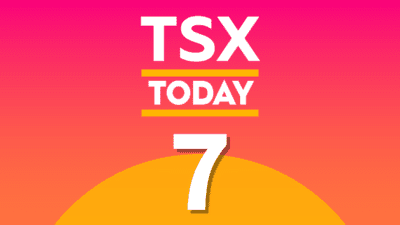Grocers such as Metro (TSX:MRU) are still some of the best investments you can add to your portfolio today and hold for a decade or more. Investors can either do this through the company’s string of positive results or the masterstroke acquisition into the pharmacy sector, and there’s little reason to doubt the long-term prospects of Metro.
Here are a few lesser-known reasons why investors may want to diversify their portfolio by investing in Metro.
The “necessity duo”
To be blunt, we need grocers. Even more so than the modern conveniences of our world delivered to us through our utilities and telecoms, grocers provide us with what is the single most important thing we need to survive (until someone figures out how to package and sell air).
Then there’s the emotional aspect. When it comes to purchasing food, many of us derive a sense of pleasure from doing so and want to share that enjoyment with our loved ones. By way of example, think of Valentine’s Day, which is tomorrow, coincidentally. Almost by default, most of us will purchase dinner or prepare a meal for our significant other.
You can’t derive that sense of satisfaction from paying your cell phone or utility bill, can you?
The perishable moat
Speaking of cell phones, the introduction of smartphones has disrupted so many aspects of our life, made the world a smaller place and has completely transformed the retail market. Most of us now shop using our phones instead of going into stores, which has made many of the more traditional retailers fearful for their future.
Fortunately, grocers such as metro have another ace up their sleeve in the form of the groceries themselves.
The perishable and fragile nature of groceries makes online shipping more difficult and expensive for the e-commerce giants. In fact, grocery shopping itself is still a very personal experience that would be hard to replicate; how could we inform the retailer how ripe we want our bananas and apples?
Despite that existing moat, there is some movement toward online ordering and shipping. Several big-box retailers have established their own fee-based delivery services, and Metro has been trialing their own service. Initially in several trial markets, Metro allowed shoppers the option of ordering and delivery in Metro-owned vans for a fee. To date, the trail has proved successful, and the company continues to roll out the service to new markets, targeting to expand into areas of Ontario later this spring.
The pharmacy side business
Over the course of the past few years, the retail market has begun to blur with other traditional businesses, specifically pharmacies. Not only are we seeing a greater mix of goods in pharmacies, but we’re also seeing pharmacies emerge within larger retailers.
Beyond the obvious “keep the customers in the store” advantage, doing so allows a retailer to cross-merchandise their products with the pharmacy, catering to those shoppers that need to pick up a few items but would rather not venture into a massive grocery store. Metro’s acquisition of the Quebec-based Jean Coutu group accomplishes that need and much more.
The deal has already provided a nice uplift to earnings, and additional gains are likely to continue over the next few quarters as Metro fully realizes synergies related to the deal.
Final thoughts
Metro is an investment that has it all: strong growth prospects, a growing network of stores and a newly integrated pharmacy arm that also offers some cross-selling opportunities. While not the most lucrative on the market, Metro’s dividend is also at an appropriate level for most long-term investors to commit to.
In short, Metro belongs in nearly every portfolio.








